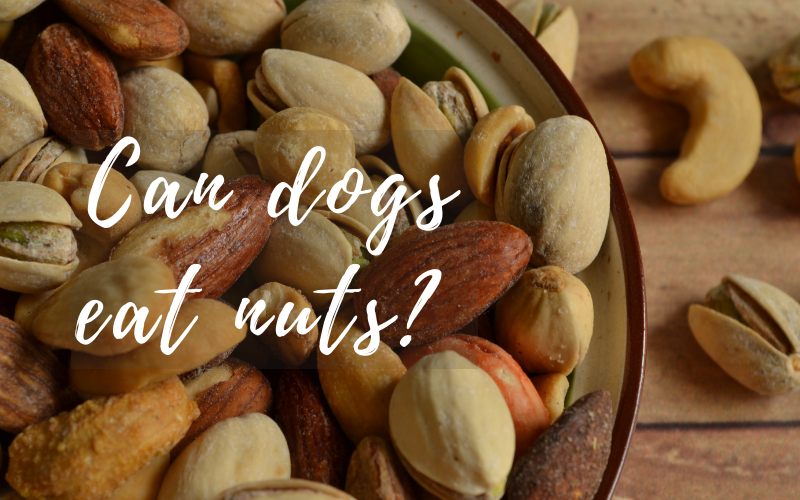We see nuts as an energy-rich treat – full of proteins, minerals, antioxidants and healthy fats. But can dogs eat Brazil nuts? What about peanuts or walnuts or pecan nuts? On the whole, the answer is no.
And as festive snacks often include nuts, it’s good to be especially vigilant at this time of year.
[tails-cta-by-id id=”4216″]
Are nuts good for dogs?
Nuts might have nutritional benefits for humans, but for dogs there are too many risks. Reasons not to give your dog nuts include:
Toxicity
Some nuts, like macadamia nuts and black walnuts are toxic to dogs.
Choking hazard
Nuts (and the natural casings around them) can get stuck in your dog’s throat if eaten too enthusiastically.
Fat and calorie content
A nut may seem small, but relative to the size of most dogs they’re a substantial snack – and can account for a significant proportion of your dog’s daily calorie and fat allowance. Regularly eating high-fat, high-calorie treats like nuts can cause your dog to gain weight. And eating too much fat can trigger pancreatitis.
Salt
The nuts we eat are often salted. Dogs need some salt in their diet, but seasoned nuts often contain far more than the healthy level.
Related blog: Is salt bad for dogs?
Flavour
Another reason not to give dogs nuts – they don’t find them particularly appetising. There are exceptions, of course, but in general dogs prefer meaty or fishy snacks.
Stomach upsets
Nuts can upset your dog’s tummy. Causes include:
- Eating too much fat in one go – can unsettle your dog’s digestive system.
- Nuts can go mouldy or rancid – if they’re not stored in the right way. Dogs aren’t great at detecting when food is off so are likely to eat the nuts anyway – and end up with an unpleasant case of vomiting and diarrhoea as a result.
- Nut allergies – these are rare in dogs, but symptoms include sickness and diarrhoea.
Related blog: Allergies in dogs
What nuts can dogs eat?
Nutritionally, peanuts are OK to give your dog, and they’re likely to prefer the taste to other nuts. But whole peanuts can get stuck in your dog’s throat, so are best avoided. Peanut butter is a safer option. Read the label carefully before you scoop out a spoonful – some peanut butters contain xylitol, an artificial sweetener that’s toxic to dogs. You should also try to avoid brands with added salt and sugar – both can be bad for your dog’s health.
Related blog: Can dogs eat peanut butter?
Nut safety for dogs
Keeping nuts out of your dogs diet is only half the task when it comes to nut safety. If your dog sees an opportunity to sneak some nuts when you’re not looking, they’re likely to take it. Here are some common nut-scavenging scenarios to watch out for:
Trees
If your autumn walks take you past a nut-bearing tree, keep your dog at a safe distance so they can’t gobble up any they find on the ground.
Bird feeders
The ground below a bird feeder is often scattered with fallen nuts. Best to keep your dog away so they don’t scavenge a mouldy nut or spoiled fat treat that could upset their stomach.
Christmas
Nuts and Christmas go together like Tintin and Snowy. But while you tuck into the nutty treats, try to keep them out of reach of your dog. Especially unshelled nuts, as the natural casings are inedible.
With the exception of xylitol-free peanut butter, we don’t include nuts in our food because the risks outweigh the benefits. But we tailor your dog’s unique recipe around their age, breed, health, activity-level and more, to make sure they get all the nutrients they need.
Remember: treats count too! Get to know everything about dog weight management and why it is important.


Interesting didn’t know about the xylitol connection as we use the butter peanut in his Kong.